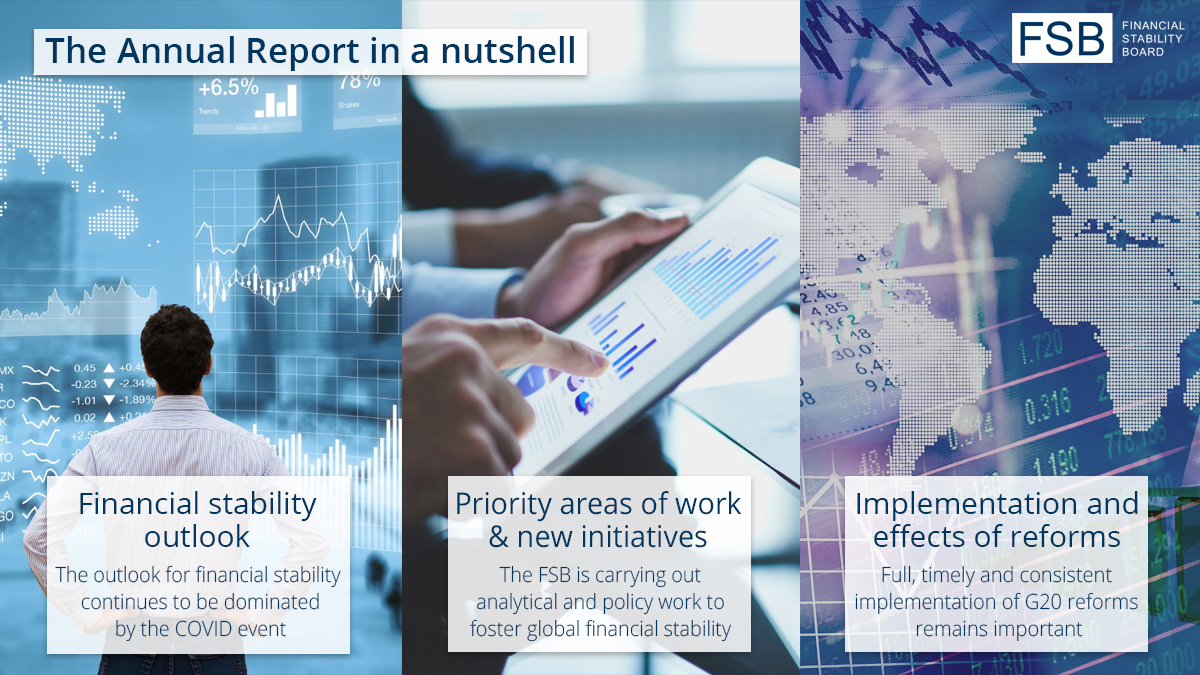With the FSB’s overall work shifting increasingly to new topics and the assessment of new and emerging risks, this year’s Annual Report has been revamped to be more forward-looking and encompassing. The current version of the report presents the FSB’s high-level assessment of current vulnerabilities in the global financial system; describes the main findings of the FSB’s ongoing financial stability work and implications for the functioning and resilience of the global financial system; and takes stock of progress by FSB members in implementing G20 reforms and reports on the findings of evaluations on the effects of those reforms.
The report notes that the outlook for financial stability continues to be dominated by the COVID-19 pandemic, with the recovery uneven across economies and sectors. It highlights financial vulnerabilities related to stretched asset valuations and high non-financial sector debt, stemming from the combination of pronounced economic uncertainty, easy financing conditions and sustained policy support. A rapid tightening in financial conditions following a strong bounce-back in the global economy, or a strong resurgence of the pandemic leading to another round of strict lockdowns, could trigger these vulnerabilities.
The report highlights the analytical and policy work the FSB is carrying out to foster global financial stability in response to the pandemic as well as to new and emerging risks. This includes, amongst others, work to enhance the resilience of NBFI; cyber incident response and recovery; to address risks from so-called “global stablecoin” arrangements; to enhance cross-border payments; and to assess and address climate-related financial risks.
The report finds that there has been limited additional progress in implementing G20 reforms over the past year, as authorities have focused on responding to the impacts of the pandemic. Regulatory adoption of core Basel III elements has generally been timely to date, but implementation of the final reforms to the capital framework is still at a very early stage. More work is also needed to close gaps in the operationalisation of banks’ resolution plans and to implement effective resolution regimes for insurers and central counterparties.
The report notes that the COVID experience provides important lessons for the functioning of the G20 reforms and reinforces the importance of global regulatory cooperation and of completing the remaining elements of the post-crisis reform agenda. Those parts of the financial system where implementation is most advanced displayed greater resilience and were able to cushion, rather than amplify, the shock. The financial stability benefits of the full, timely and consistent implementation of G20 reforms remain as relevant as when they were initially agreed. The FSB and standard-setting bodies will continue to promote approaches to deepen international cooperation, coordination and information-sharing, with the support of the G20.
